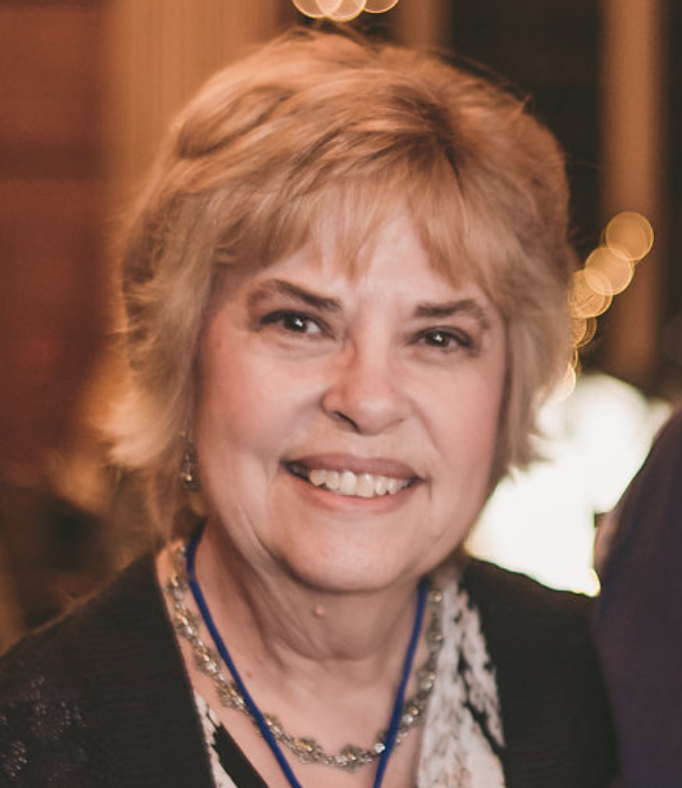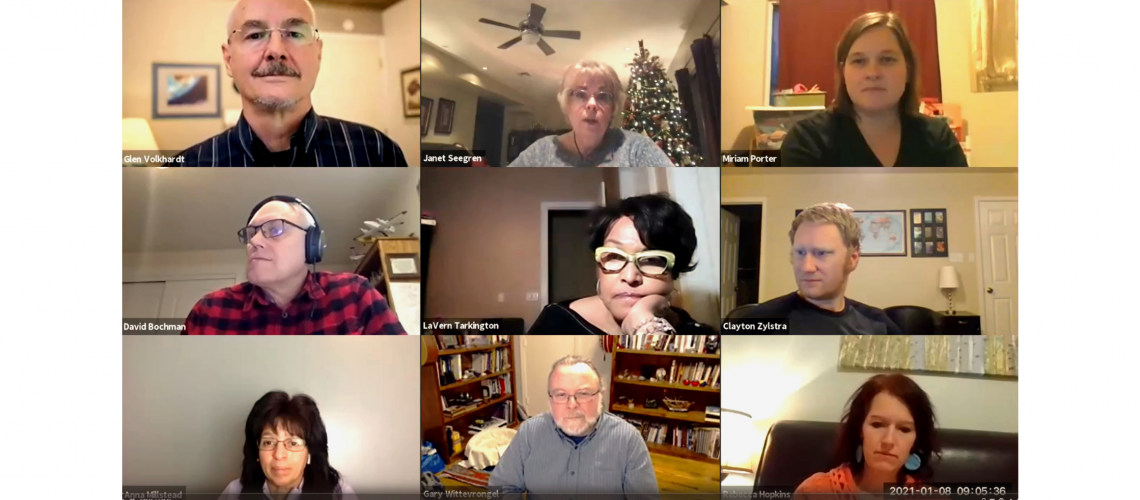The board of Paraclete Mission Group has just released a Standards and Philosophy for Justice that will become the foundation for ministry and future policy surrounding matters of justice.
- We rely on God’s word and the Holy Spirit for this journey toward justice.
- We start with personal and corporate examinations and commitments to justice.
- We partner with others to learn and grow in our understanding and practice of justice.
- We operate Paraclete Mission Group in ways that reflect God’s justice.
- We engage in ministry that demonstrates God’s heart for justice.
Rebecca Hopkins, Paraclete’s communications lead, sat down with Paraclete Board Chair Janet Seegren to learn the story behind the changes.

Where did this decision come from?
There’s no doubt that it was spurred on by the events surrounding the death of George Floyd. As board members, we saw other organizations—missions-minded and Christian organizations—responding. And we were wondering, what documents does Paraclete have? Where do we talk about a heart for justice, or our standards? What do we say about that? We began to search and we found a disappointing lack of any articulated vision or guidelines. There was never any belief that that had been willingly and maliciously ignored. It just hadn’t been brought to anybody’s attention. And so, some board members said, “we should do something.”
Why is this important? As Christians, why is it important to be specific?
Justice is a very important concept that scripture develops, particularly in the Old Testament, where we read so clearly about God’s heart for that. And we know that Paraclete associates are doing some of that work. We come alongside and advocate. Why would we not have clearly articulated vision and aspirations in that area? This was a historic window of opportunity where it just knocked on our door and said, “it’s time.” And we just couldn’t let that go.
The challenge was that for some time, there clearly was a lot of rhetoric in the air by lots of people on many sides of that issue. Strong reactions to the topic could have scared us away from dealing with justice. There were some who would have preferred not to take up these difficult topics. So, we moved slowly, deliberately. As the Paraclete board, we had to first reach an agreement on what, where, when, how we should do this.
The board assembled a working group of board members and associates in January 2021 to begin that discussion. The group made a number of recommendations in a report that was presented to the board in April 2021. Then it took the board some time to process that. The articulated standards and philosophy that we have just passed provide a roadmap for us now to say, “What should our guiding statements say that reflect this? What should our behavior be that reflects this?” This is only the foundational piece.
What do you think the board has learned through this process?
The board has learned a couple things. One is the importance of dealing with difficult subjects. In other words, you don’t just sidestep things about which people can disagree, things about which there can be many different viewpoints, things about which it may be challenging to reach an agreement and consensus. It is the board’s responsibility to set those kinds of things in place.
We have also learned that setting policy is only the beginning. Now the work begins as leadership guides the organization itself to make the vision come to pass, and how we show and demonstrate and encourage and support all of the associates in the organization to deal with this difficult subject. We don’t avoid the difficult topics. We work to understand each other. How we grow this vision out to our Paraclete community and to the areas our ministry reaches will be the next challenge we face.


4 thoughts on “Paraclete Board Sets Justice Standards”
Hello, my husband and I were just introduced to your mission group and are unfamiliar with Paraclete.
[“This was a historic window of opportunity where it just knocked on our door and said, “it’s time.” And we just couldn’t let that go.”]
We found this to be a very interesting statement for it implies that justice was being ignored by your organization and now according to your own words it is time to focus on justice. We would like clarification on defining what you mean by ‘justice’? In what ways were you previously not focused on justice? To an outside observer, what does the new direction look like that would distinguish your organization from what it was prior to this new focus? We’d like to know some of the details on how you would demonstrate in deed rather than word that you’re supporting justice in general.
Thank you so much for your interest in our ministry and your thoughtful questions. The societal interest in the topic was the compelling reason to make a clear statement to our staff and the world, so that people would know what we believe. We think justice is an old concept, rooted in God’s concerns for healthy relationships with each other.
As far as definition goes, we used many verses from the Bible as our guide (Prov. 1:3, Ps. 103:6, Isa. 51:4, Isa. 42:1-4, Isa. 56:1, Exo. 23:2 to name just a few). We also recognize that justice, righteousness and fairness have some overlap in the Bible.
In the past, we were missing an EEOC statement and a justice statement. Now we are working on a more focused effort in recruiting diversity. The new direction is not only a matter of the results we seek. It also has to do with more the way we work, including recruiting and systems that would allow for more diversity, like the international partner associate category.
We agree that we should value justice in deed and not just in word. To give a few examples, we have associates working with trafficked individuals, those struggling with homelessness, the marginalized and refugees. Thanks again for your comment.
Glad you are working on diversity!
We have been much concerned at the very few black church have any whites or Hispanic.
Blacks attend white churches but very few blacks have whites in their churches at all.
Seriously your new policy doesn’t help at all.
Were you racist before the policy. By the way, quoting a few verses does not deal with biblical justice.
It seems as if you have simply joined the woke crowd.
Thanks for your comment. We think diversity is close to God’s heart. It is what makes unity possible. We also grieve that churches continue to be segregated into races. Some of our associates intentionally worship and/or live cross-culturally and cross-racially.
We wrote our policy with our own organization in mind and hope that it becomes a tool for healthy culture. Time will tell if it helps us remember justice and act with justice. And as far as being racist before, yes, that’s certainly possible and could continue to be the case, but that’s not what we want. We also agree with you that quoting a few verses doesn’t completely address biblical justice. But we believe that Scripture is an important and critical guide to producing lasting change. It hasn’t been our intention to join a so-called ”woke” crowd. We desire to respond intentionally and biblically to concerns raised in our American communities—concerns that have been close to God’s heart from the beginning.